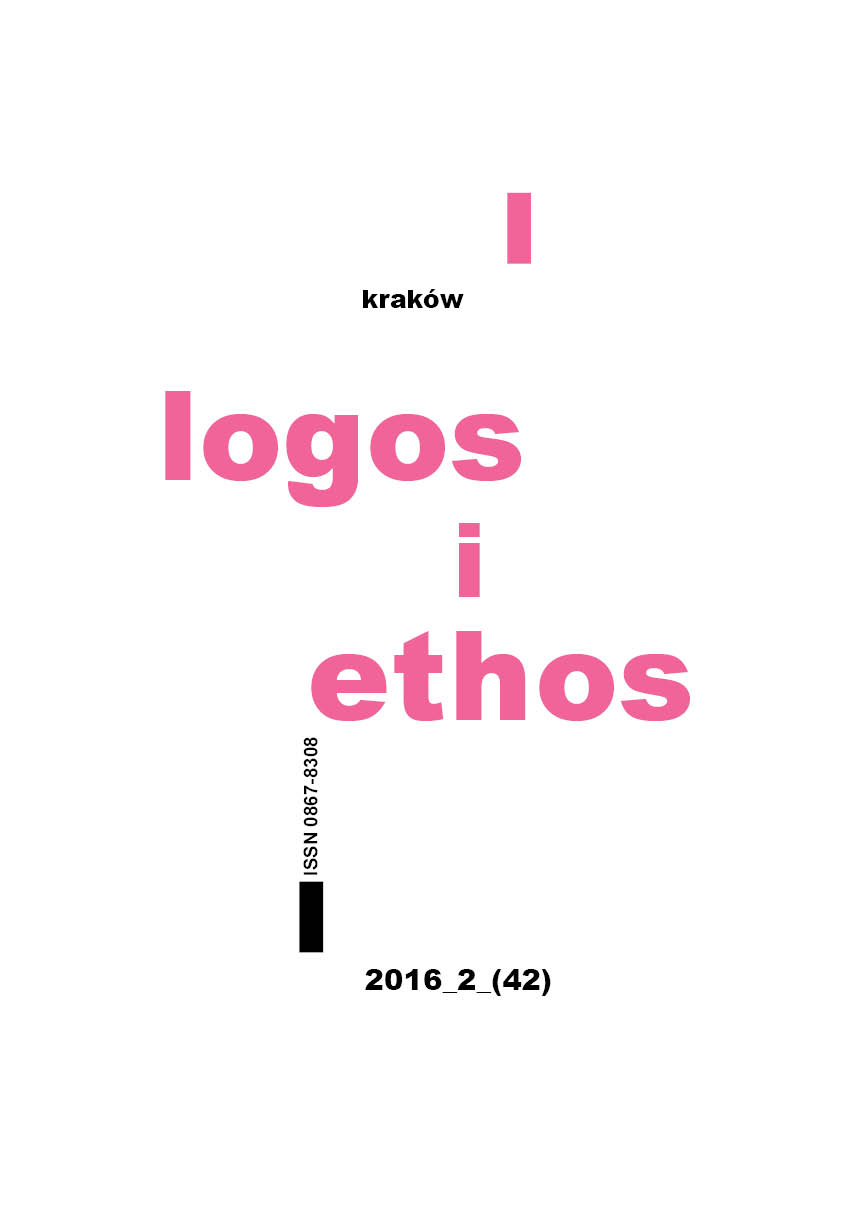’Aκρασία and desire
DOI:
https://doi.org/10.15633/lie.1914Słowa kluczowe:
Ἀκρασία, desire, practical syllogism, socratic intellectualism, backslidingAbstrakt
Although he does not use the phrase, in Book VII of the Nicomachean ethics, Aristotle contends with the philosophical problem of socratic intellectualism, attempting to unwind the apparent paradox of the ἀκρατής, the man who knows what he ought to do and who fails to do it. As part of this project, he examines the mechanism of the practical syllogism, knowledge in terms of potency and act, as well as ignorance and knowledge. In this essay, I will briefly review Aristotles’ endeavor, emphasizing the role of desire in the practical syllogism. By taking apart the example syllogism he uses, I will argue that desire plays a fundamental role in the deliberative process and functions as a kind of implicit universal premise. In doing so, I will show the interaction between reason and desire and the way in which the latter plays a pivotal part in the conclusion of the practical syllogism. Finally, insofar as desire can be understood as one of the premises of the syllogism and thus a kind of ‘knowledge,’ I will conclude by arguing that moral development consists in reason determining the proper mean for each of the virtues, and that it has an important role in cultivating the emotions, ordering them to the principles of practical wisdom.Bibliografia
Aristotle, De Anima, [in:] Aristotle: the complete works. Electronic edition, ed. by J. Barnes, Charlottesville 1992.
Aristotle, Nicomachean ethics, transl. M. Ostwald, Upper Saddle River 1999.
Euclid, The first six books of the Elements of Euclid, in which coloured diagrams and symbols are used instead of letters for the greater ease of learners, transl. O. Byrne, London 1847.
Garrocho Salcedo D. S., La dimensión cognitiva de las pasiones : La vigencia de Aristóteles en la psicología moral contemporánea, „Éndoxa: Series Filosóficas” 31 (2013), p. 15–30.
Henry D., Aristotle on pleasure and the worst form of akrasia, „Ethical Theory and Moral Practice” 5 (2002), p. 255–270.
Plato, Protagoras, [in:] The collected dialogues of Plato, ed. B. Jowett, Charlottesville 1993.
Rivera M. L., Voluntad y akrasia, „Saga” 11 (2005), p. 59–67.
Sherman N., Is the ghost of Aristotle haunting Freud’s house?, [in:] Proceedings of the Boston Area Colloquium in Ancient Philosophy, ed. by J. J. Cleary, G. M. Gurtler S. J., vol. 16, Boston 2000.
Stoyles B. J., Aristotle, akrasia, and the place of desire in moral reasoning, „Ethical Theory and Moral Practice” 10 (2007), p. 195–207.
Studies on Plato, Aristotle, and Proclus: collected essays on ancient philosophy of John J. Cleary, ed. by J. Dillon, B. O’Byrne, F. O’Rourke, Boston 2013 [Ancient Mediterranean and Medieval Texts and Contexts, 15].
Pobrania
Opublikowane
Numer
Dział
Licencja
Autorzy publikujący w czasopiśmie udzielają jego wydawcy zgody o następującej treści:
- Autor zachowuje autorskie prawa majątkowe do utworu, a jednocześnie udziela wydawcy czasopisma zgody na jego pierwszą publikację w wersji drukowanej i wersji online na licencji Creative Commons Uznanie autorstwa 4.0 Międzynarodowe oraz zgody na wykonywanie opracowań, w tym przekładów.
- Autor ma możliwość udzielania zgody niewyłącznej na opublikowanie utworu w wersji, która ukazała się w czasopiśmie (np. zamieszczenia go w repozytorium instytucjonalnym lub opublikowania w książce), wraz z informacją o jego pierwszej publikacji w czasopiśmie.
- Autor może umieścić swój utwór online (np. w repozytorium instytucjonalnym lub na swojej stronie internetowej) jeszcze przed zgłoszeniem utworu do czasopisma.

